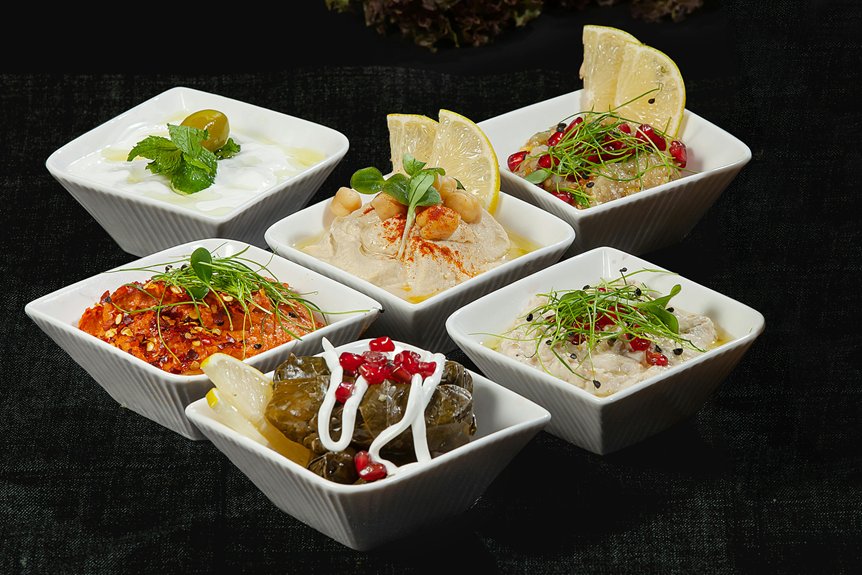
You’ve probably noticed a shift in your kitchen lately, where yogurt used to reign supreme. Now, a variety of probiotic foods like kimchi and kombucha are making their way into American diets. This change reflects a growing awareness of gut health and a desire for diverse flavors. But what drives this trend, and how can you easily incorporate these foods into your meals? Let’s explore the evolution and benefits of these exciting additions.
The Rise of Fermented Foods
As more people seek healthier lifestyles, fermented foods like kimchi, sauerkraut, and kombucha are becoming staples in American kitchens.
You might’ve noticed that nearly 30% of Americans now regularly include these flavorful foods in their diets. The rise in popularity reflects a growing awareness of their health benefits, especially their rich probiotic content. Fermentation not only boosts the nutritional profile of these foods but also brings unique flavors and textures that appeal to diverse palates. As you explore these options, you’ll find that incorporating fermented foods can enhance your gut health and immune function. This trend aligns with the increasing interest in natural and holistic health approaches, making fermented foods a delicious alternative to processed options. Furthermore, many people are turning to Bioma Probiotics to complement their diets and improve their digestive health.
Understanding the Gut Microbiome
What makes the gut microbiome so vital to your overall health? This complex ecosystem, teeming with trillions of microorganisms, is essential for digestion, metabolism, and immune function.
A diverse gut microbiome often means better health outcomes, reducing your risk of obesity, diabetes, and inflammatory diseases. You can influence the balance of your gut bacteria through diet, lifestyle, and even antibiotic use.
A high-fiber diet fosters the growth of beneficial bacteria, essential for maintaining gut health. Additionally, probiotics from fermented foods or supplements can help restore balance. Bio Complete 3 is designed to enhance nutrient absorption and support a healthy gut microbiome.
Emerging research also highlights the connection between gut health and mental well-being, suggesting that disturbances in your gut microbiome may contribute to anxiety or depression.
Prioritizing gut health is key to overall wellness.
Traditional Fermented Foods: A Cultural Perspective
While many people might associate fermented foods with trendy health fads, these dishes have deep roots in cultures around the world. Traditional fermented foods like kimchi, sauerkraut, and kefir have been staples in various cuisines for centuries.
They’ve served not only as preservation methods but also as sources of beneficial probiotics that enhance gut health. In regions such as Eastern Europe and Asia, unique recipes reflect local ingredients and culinary traditions.
With the current resurgence of interest in gut health, many home cooks in America are experimenting with these traditional foods, crafting their own versions. Incorporating a variety of fermented dishes into your diet can diversify your gut microbiome, potentially improving your overall well-being and connecting you to global culinary heritage.
Health Benefits of Probiotics
Fermented foods not only connect you to global culinary traditions but also offer significant health benefits through probiotics.
These live microorganisms improve gut health and balance your gut microbiome, which is crucial for overall wellness. By consuming probiotics in adequate amounts, you can enhance your immune system, potentially lowering your risk of infections and illnesses.
They’re also effective in alleviating digestive issues like irritable bowel syndrome (IBS) and diarrhea, especially strains such as Lactobacillus and Bifidobacterium.
Beyond digestion, probiotics positively influence mental health by reducing symptoms of anxiety and depression, highlighting the gut-brain axis.
Additionally, incorporating fermented foods like kefir, sauerkraut, and kimchi can improve metabolic health, including better blood sugar regulation.
Home Fermentation: A DIY Approach
If you’re looking to boost your gut health, home fermentation offers a fun and rewarding way to create your own probiotic-rich foods.
You can easily make delicious options like sauerkraut, kimchi, or kefir with just a jar, fresh ingredients, and a suitable environment for microbial growth.
The fermentation process transforms sugars into acids, gases, or alcohol, preserving food while enhancing its nutritional value.
Research shows that homemade fermented foods often contain higher probiotic levels than store-bought varieties, giving you a more potent source of beneficial bacteria.
Plus, engaging in this DIY approach deepens your understanding of food science and lets you explore your culinary creativity, allowing you to customize flavor profiles and health benefits tailored to your preferences.
Incorporating Probiotic Foods Into Your Diet
Home fermentation not only allows you to create your own probiotic-rich foods but also paves the way for easily incorporating these delicious options into your daily meals.
Start by adding kimchi or sauerkraut to your sandwiches and salads for a tangy twist. You can swap regular yogurt for kefir in smoothies, boosting your gut health with beneficial bacteria. Miso can enhance soups, while a glass of kombucha makes a refreshing beverage choice.
Aim for at least one serving of fermented foods daily, gradually increasing your intake. This variety not only diversifies your gut microbiome but also supports improved digestion and immune function.
Embracing these options can alleviate digestive issues like bloating and constipation, helping you feel your best.
Conclusion
Incorporating probiotic foods into your kitchen isn’t just a trend; it’s a journey into diverse flavors and health benefits. As you explore options like kimchi, kombucha, and miso, you’re not only nurturing your gut but also connecting with global culinary traditions. Embrace the DIY spirit of home fermentation, and enjoy the satisfaction of creating your own probiotic delights. So go ahead, experiment and discover how these vibrant foods can transform your meals and enhance your well-being!





